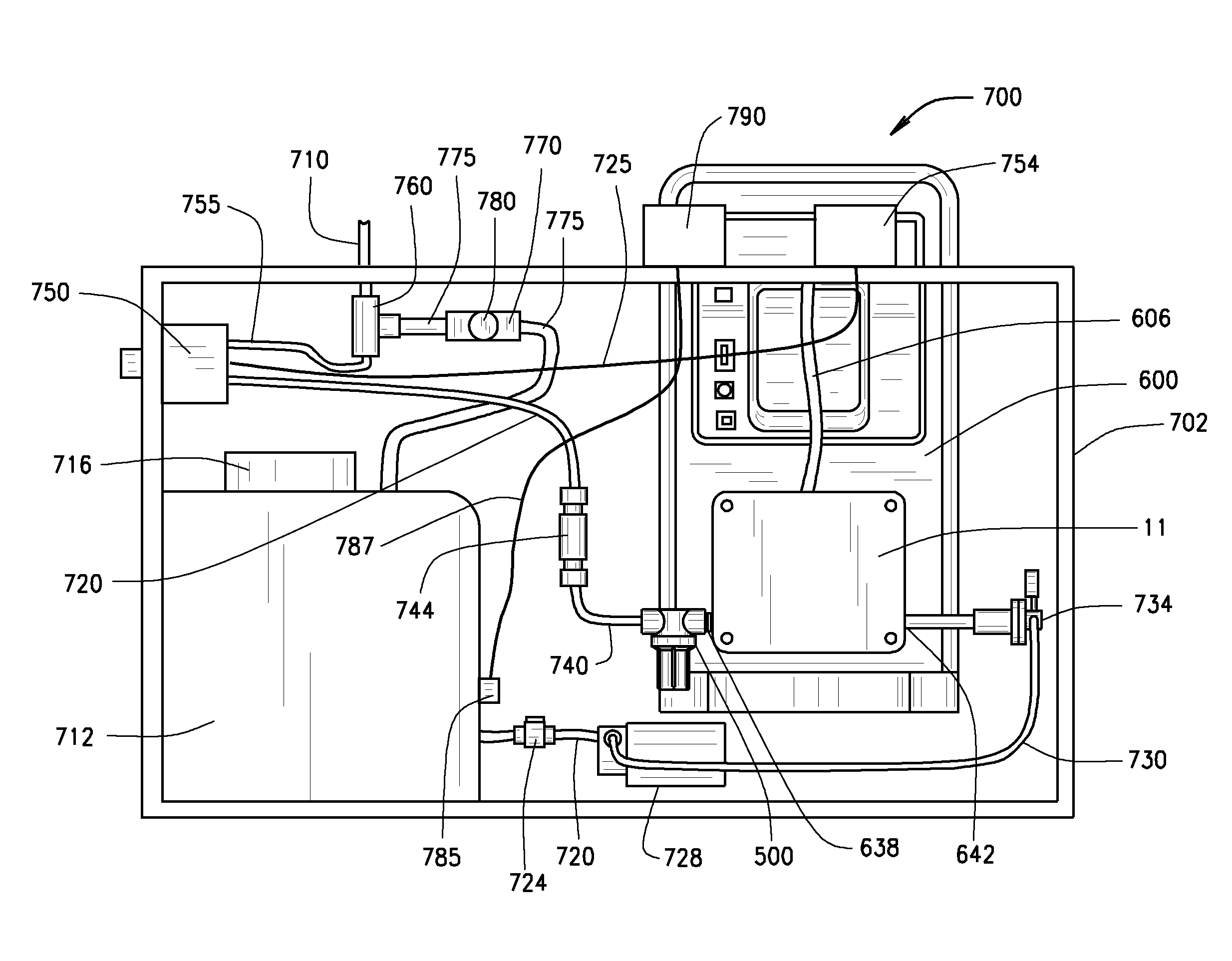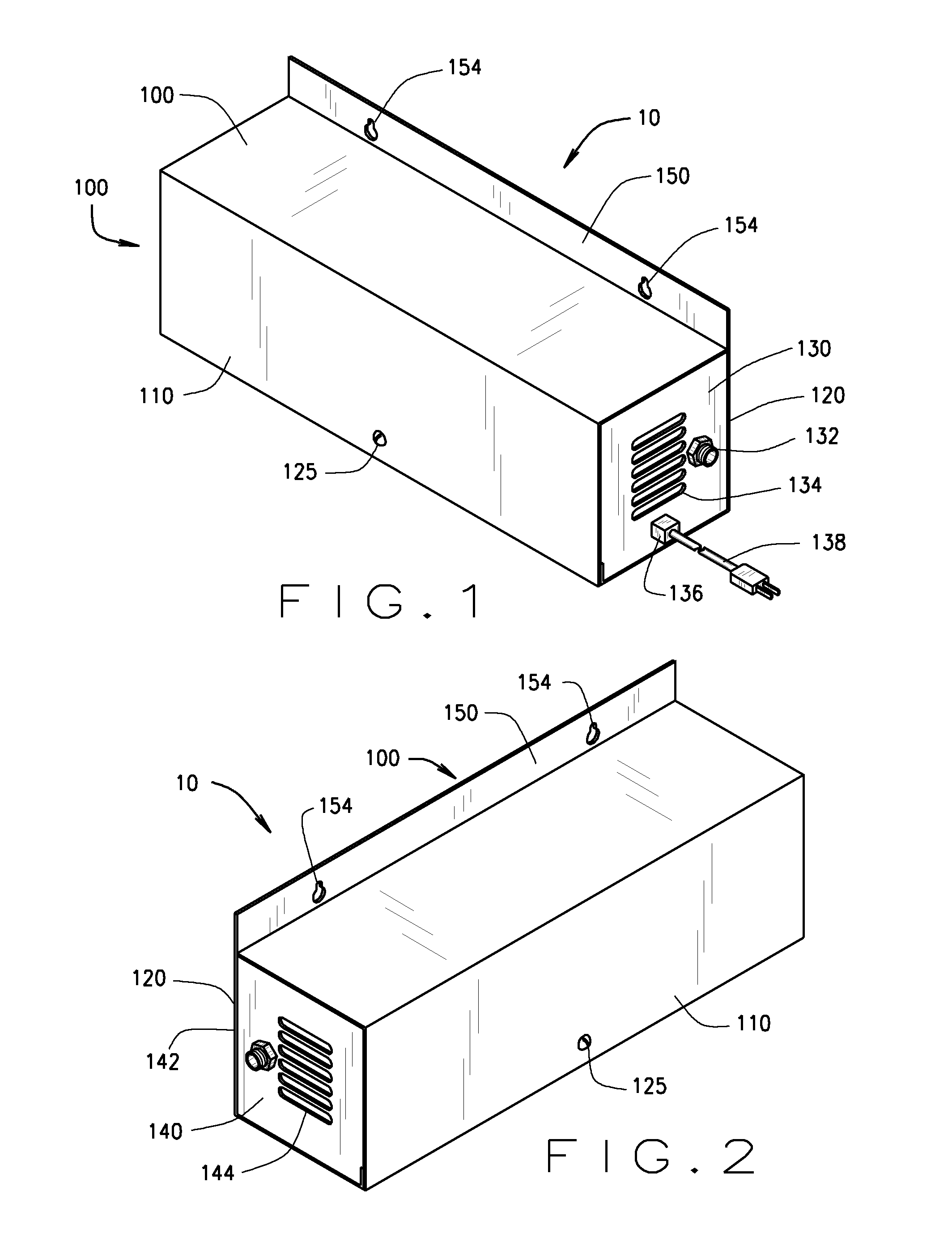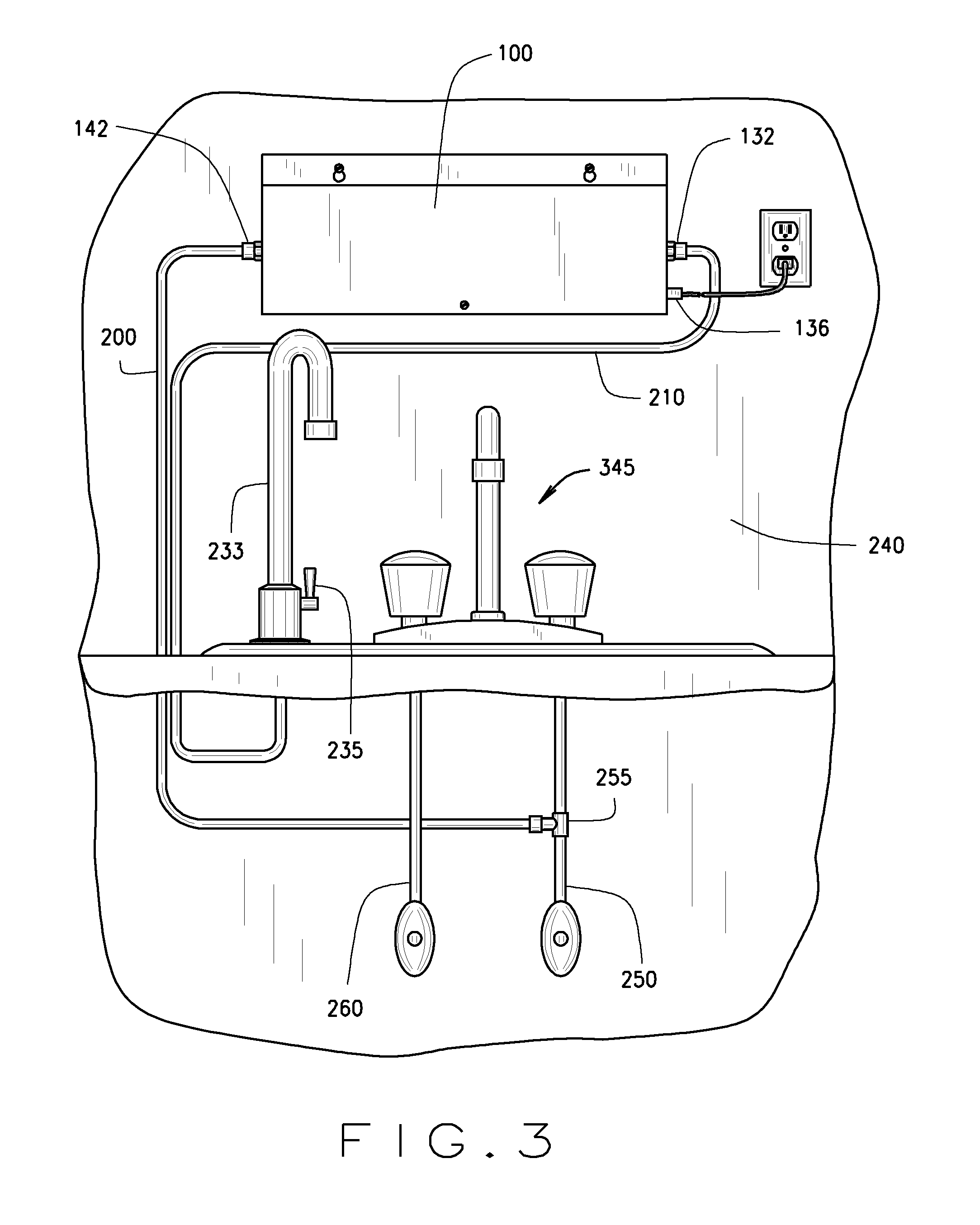Ozonated liquid dispensing unit
a liquid dispensing unit and ozonated technology, applied in the direction of liquid chemical processes, liquid gas reaction processes of thin film type, gas-gas reaction processes, etc., can solve the problems of difficult maintenance of systems, increased equipment and supply costs, and poor cleaning and sanitizing, etc., to achieve convenient installation
- Summary
- Abstract
- Description
- Claims
- Application Information
AI Technical Summary
Benefits of technology
Problems solved by technology
Method used
Image
Examples
Embodiment Construction
[0036]An ozonated liquid dispensing unit is described herein. With reference to FIGS. 1 and 2, an ozonated liquid dispensing unit 10 is shown. The unit 10 includes a housing 100, a removable housing cover 110 and a housing support 120. The housing 100, the housing cover 110, and the housing support 120 form a rectangular, box-like structure that houses the internal components of the unit 10. The housing 100 may be designed or engineered in other shapes and configurations. The housing 100, the housing cover 110, and the housing support 120 are made from sturdy or rugged materials, such as stainless steel, aluminum, or metals. Plastics and other composite materials may also be utilized in the construction of the housing 100, the housing cover 110 and the housing support 120.
[0037]As shown in FIGS. 4-6, the housing cover 110 is removed from the housing 100 to show the housing support 120, which receives and stabilizes the internal components of the unit 10. The housing cover 110 may be...
PUM
| Property | Measurement | Unit |
|---|---|---|
| size | aaaaa | aaaaa |
| open volume | aaaaa | aaaaa |
| volume | aaaaa | aaaaa |
Abstract
Description
Claims
Application Information
 Login to View More
Login to View More - R&D
- Intellectual Property
- Life Sciences
- Materials
- Tech Scout
- Unparalleled Data Quality
- Higher Quality Content
- 60% Fewer Hallucinations
Browse by: Latest US Patents, China's latest patents, Technical Efficacy Thesaurus, Application Domain, Technology Topic, Popular Technical Reports.
© 2025 PatSnap. All rights reserved.Legal|Privacy policy|Modern Slavery Act Transparency Statement|Sitemap|About US| Contact US: help@patsnap.com



